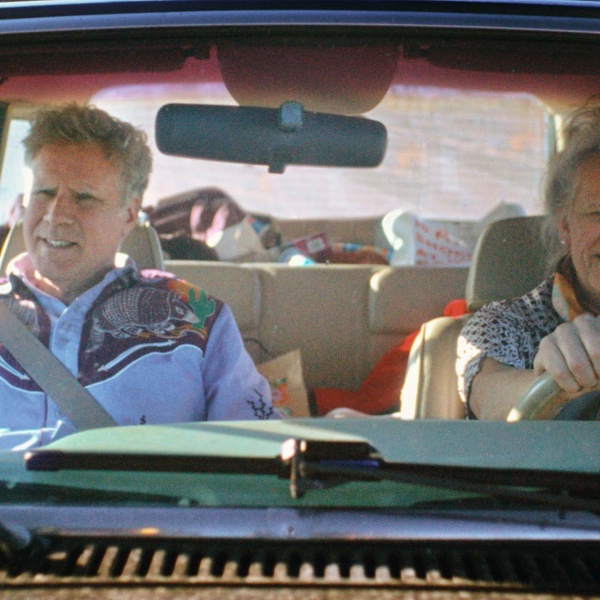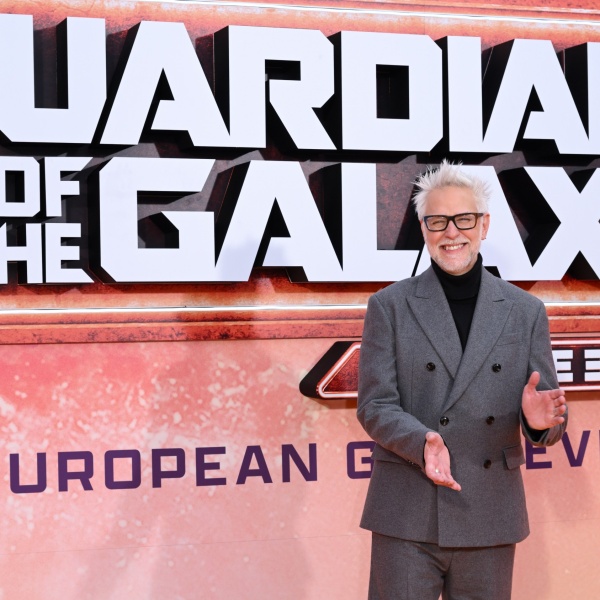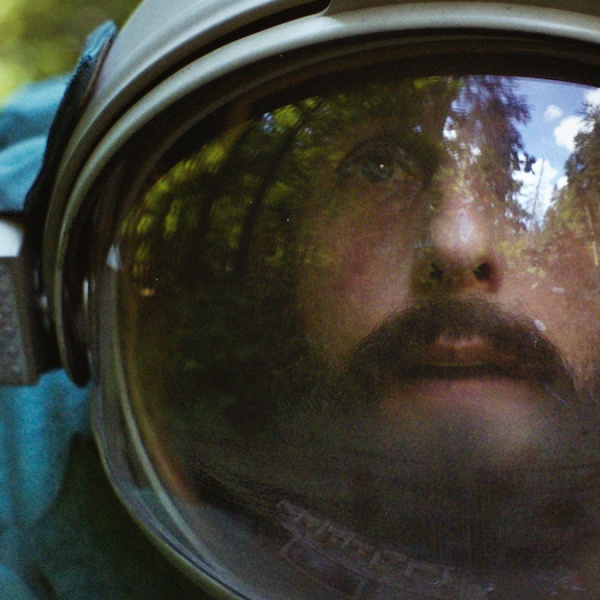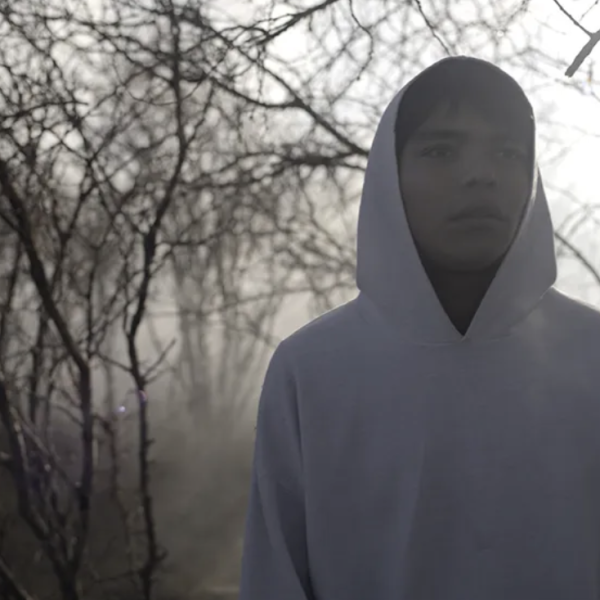Until recently, filmmaker Jon Erwin was the reigning box-office champ for faith-based films with “I Can Only Imagine” and “Jesus Revolution.” Shortly after “Sound of Freedom” opened to $14.2 million, he offered advice to Angel Studios on how it might capitalize that success.
By November, when the child-trafficking drama grossed $250 million worldwide, Erwin lost his bragging rights. He remembers joking with the producers, “It wasn’t supposed to work this much!”
Ego aside, he welcomed the success. As “Sound of Freedom” inspired box-office think pieces and conspiracy-theory controversy, Erwin and partner Kelly Merryman Hoogstraten were in talks with Amazon Studios. Today, their company The Wonder Project is producing a slate of faith-based series and films; Erwin said he’d “be lying” if he believed “Sound of Freedom” didn’t help him get a better deal.
“I had not felt that hunger from the studios in a long time to reach the audience,” Erwin told IndieWire. “It’s an audience that doesn’t even want to feel agreed with. It’s a massive audience that just wants to feel seen, heard, and understood.”
Amazon and Erwin are not the only ones to take note. Netflix will release a docuseries about Moses. Martin Scorsese is executive producing a project for Fox Nation about historical Christian saints. Lionsgate has a deal with Erwin’s former production banner, Kingdom Story Company, which produced “Ordinary Angels” and the upcoming “Unsung Hero.” And Angel Studios is setting up shop at CinemaCon to double down on its own success.
Faith-based movie lovers are a terminally underserved crowd and “Sound of Freedom” isn’t the first time pundits believed Hollywood cracked its code. This time, the producers have faith — pun intended — that “Sound of Freedom” isn’t an anomaly.
“The growth that has happened the last 25 years, you have studios popping up around town and you have producers, directors, and writers passionate about writing stories for this middle-American audience,” said Kevin Downes, an actor and co-founder of Kingdom Story Company. “Faith-based or not, the fact that there is that fire and hunger from beginning to end, from content creators to distributors, you’re going to continue to see it grow. The audience is there. The audience isn’t going anywhere.”

When faith-based films were limited to Billy Graham movies like “The Restless One,” Hollywood didn’t want to fund them. A-list talent feared that they would lead to typecasting. And not many people wanted to watch them.
According to Lionsgate motion picture group president Nathan Kahane, the primary shift lies in the quality of filmmaking — and with that, talent followed. The films are also attracting a younger audience. “These were filmmakers who were largely ignored and not given the opportunity to tell their stories in Hollywood 15 years ago,” he said.
And while some of Erwin’s upcoming films feature unknowns, the casts also include Judy Greer, Lauren Graham, Zachary Levi, and Patricia Heaton. “We’ve proven this can be a very successful type of content for them to be in, and I hope that we’ve shown that we can create work that matches the excellence they’ve built their careers on,” the producer said. “There’s so many A-listers that have deep faith, and the better we get at what we do, the more we can collaborate.”
Some of Erwin’s projects are based on Biblical stories, such as upcoming Amazon TV series “House of David,” but many of the top performers blur the lines. Comscore senior analyst Paul Dergarabedian says a movie like “Sound of Freedom” performed well with secular audiences and over-indexed with Latino crowds.
“Defining [the films] is becoming tougher, which I think means they’re becoming more popular,” he said. “They’re crossing over.”
It also means a rebrand, with “faith-based” becoming “inspirational.” Erwin says The Wonder Project’s mission is to create a “values-based ecosystem,” with “content that restores faith and advances things that are worth believing in.”

“This is an audience that’s unseen and underserved, and we can infuse those values in all kinds of content and all kinds of genre,” Erwin said. “There’s a lot of content that uplifts and inspires and restores faith in things that are worth believing in.”
Belief, in this case, doesn’t necessarily mean Christianity or religion. According to Erwin, even “Top Gun: Maverick” is a film that “restores faith.” He believes that the pandemic fueled the desire for movies that “ask the big questions” and leave you feeling good.
“To really take the next step or the next leap with this type of content is just to change the way we think about it,” he said. “Thinking in a broader sense is the answer.”
Even at Angel Studios, its mission statement is to tell stories that “amplify light” for a wide, mainstream audience. Post-“Sound of Freedom,” exhibitors seem to agree; Brandon Purdie, Angel’s executive VP and head of global theatrical distribution, said they have recently been more willing to give their films larger screen counts.
According to Purdie, the 2024 Angel slate doesn’t contain any specifically “faith-based” films, even if Angel’s community of backers is largely “faith-friendly.” The studio is also willing to tell stories that “explore the depths and depravities of the world and humanity” in order to find the light, whether that’s a film like “Sound of Freedom” or this year’s “Cabrini.”
“We’re so polarized,” he said. “What the cinema and movies can do is make this communal moment where we can view content and enjoy something as a society.”
Purdie credits Angel’s current opportunity to the enhanced abilities of targeted marketing. “They’re able to build that list of people who say, not only do I want to see these movies, but wherever you come from or whatever your beliefs are, I want to do something about the state of things and I want to support something that I believe in.”

Purdie said Angel’s Wednesday morning presentation at CinemaCon won’t pitch exhibitors about the appetite for faith-based films. The studio will focus on its “slate of well-made movies” that he believes will perform in theaters.
The more explicitly faith-based films also perform exceptionally well in the event cinema space. Ray Nutt, CEO of Fathom Events, told IndieWire that just under half of the distributor’s 2023 revenue came from faith-based movies.
Event screenings of Season 4 of “The Chosen,” an independent series distributed by Lionsgate after a legal battle ended its relationship with Angel Studios, brought in $32 million at the box office in February for Fathom Events and added another $2 million as a Easter weekend marathon. In all, Fathom has released over 150 faith-based titles since 2012 and brought in just shy of $200 million in box office. Nutt believes this is now a market built for the long haul.
“Hollywood is being more accepting of this particular category these days,” Nutt said. “People are looking at the movie theater as a place to go, not necessarily as a total alternative for their church, but people who are churchless are finding a place where they feel comfortable being around other people.”
The strength of faith-based movies at the box office makes Erwin believe that he can build something sustainable. He’d like to grow The Wonder Project into a studio that’s as synonymous with inspirational stories as Blumhouse has become for horror. Fittingly, Jason Blum is an investor in Erwin’s company.
“I think the audience is hungry. It’s the largest affinity group in the world, and maybe one of the last great frontiers in our industry,” Erwin said. “The better we make the content, the broader we make the content, I think the sky is the limit.”





